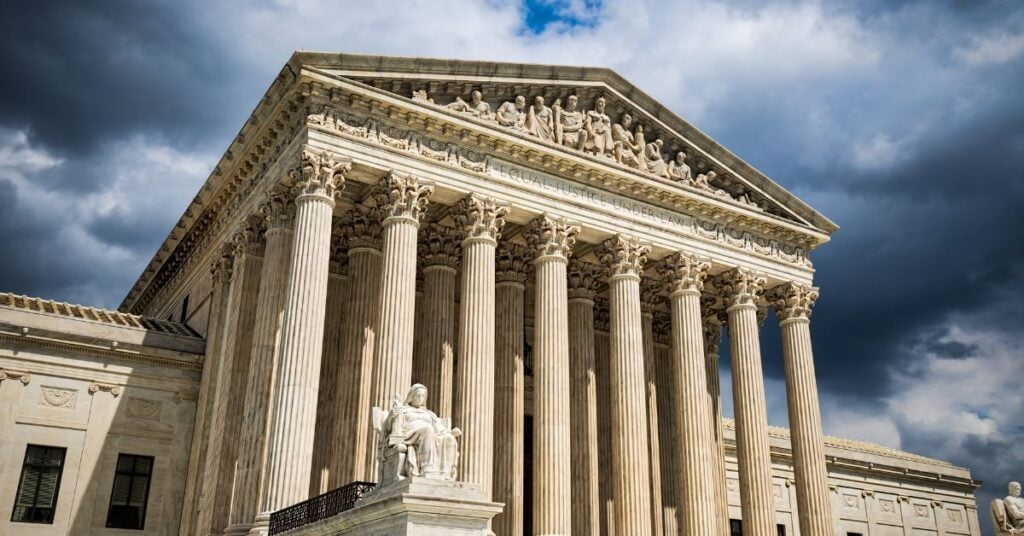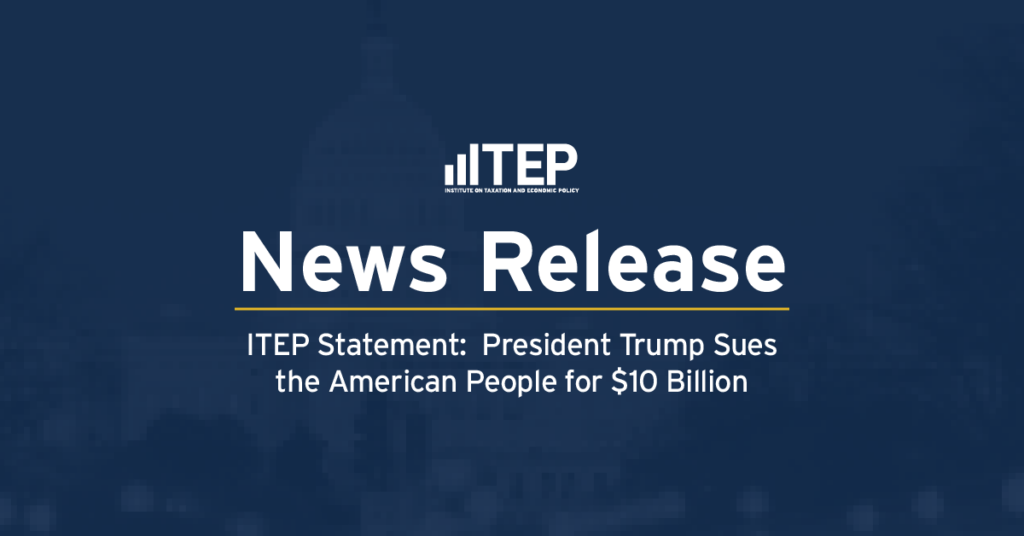Contact: Jon Whiten ([email protected])
Later this year, the Supreme Court will hear Moore v. United States which could become the most important tax case in a century. Ostensibly about the tax liability of an American family with shares in an Indian farming firm, the Roberts Court’s decision could stretch far beyond the plaintiffs themselves. SCOTUS could decide to place new limits on Congress’s authority to tax income under the 16th Amendment. While SCOTUS might take a narrow view based only on the facts and petitioners at hand, it could also issue a broad decision, putting in legal jeopardy many laws that prevent corporations and individuals from avoiding taxes. If it does so, the Roberts Court would suddenly supplant Congress as a major American tax policymaker, introducing great uncertainty about our democracy’s ability to tax large corporations and the most affluent.
“Supreme Corporate Tax Giveaway: Who Would Benefit from the Roberts Court Striking Down the Mandatory Repatriation Tax?”—a new report by the Roosevelt Institute and the Institute on Taxation and Economic Policy (ITEP)—explores both the larger stakes of the decision and how much specific corporations stand to save from SCOTUS striking down one particular provision at stake in Moore: the Mandatory Repatriation Tax (“MRT,” “repatriation tax,” or “transition tax”). And as they find, should this tax be ruled unconstitutional for corporations, almost 400 multinational corporations would collectively be granted $271 billion in tax relief by the Roberts Court. Moreover, as the authors discovered, the benefits would be heavily concentrated in the pharmaceutical and tech sectors—Big Pharma would receive 23 percent of the total benefits identified in the report, and Big Tech a hefty 45 percent of the total tax savings identified.
“At the best of times, blowing a $340 billion hole in the federal budget would be catastrophic,” said Matt Gardner, senior fellow at ITEP. “And if the court invalidates the transition tax in its Moore decision, that’s exactly what would happen: possibly the costliest Supreme Court decision of all time. And it would be hard to identify a less deserving set of tax cut beneficiaries than the companies that would reap at least $271 billion from repealing this tax.”
The authors also find that Chief Justice John Roberts and Justice Samuel Alito together hold stock in 19 companies set to receive more than $30 billion in tax relief from a broad ruling striking down the repatriation tax for corporations. As the authors argue, the fact that these justices might determine the outcome of a case that could grant a $30 billion windfall to precisely the companies they have direct ownership stakes in presents a clear conflict of interest, which puts at question these justices’ integrity and impartiality in Moore.
“In Moore, some members of America’s Supreme Court could decide to pad their personal stock portfolios by undermining the architecture of laws that prevent the corporations they have stakes in from avoiding taxes. This illustrates just how concentrated and interlocking economic and judicial power is in the US today. Short-circuiting democracy to prevent current and future tax measures that limit special privileges of this country’s largest corporations and the wealthy few would run counter to representative government. Tax policy by Supreme Court fiat would only serve to advance a vision for America that is unreflective of, and unprepared for, the economy of the 21st century,” said Niko Lusiani, director of the Corporate Power program at the Roosevelt Institute.
Whatever the eventual outcome in Moore, democracy and the Constitution require that the American people—through their duly elected representatives—determine the future of tax policy, even if that means changing the current structure and rules governing the Supreme Court to restore balance. FDR’s words echo loudly today: “We want a Supreme Court which will do justice under the Constitution—not over it. In our courts, we want a government of laws and not of men.”





